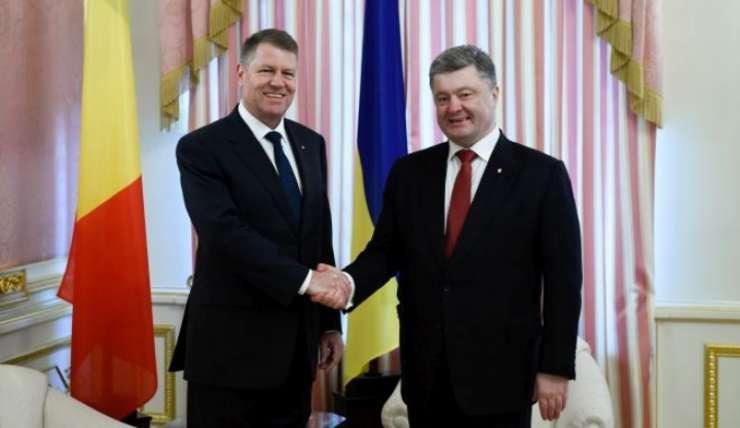Last week the upcoming visit of Romanian president Klaus Iohannis to Ukraine was officially announced.
 Thus, another potential conflict in clouded relationships between two neighboring states concerning the cancellation of scheduled September visit of Romanian president to Kiev due to the education act adopted by the Ukrainian parliament was successfully overcome.
Thus, another potential conflict in clouded relationships between two neighboring states concerning the cancellation of scheduled September visit of Romanian president to Kiev due to the education act adopted by the Ukrainian parliament was successfully overcome.
Bucharest and Kiev have always perceived each other suspiciously. In order to comprehend the background for such suspicion, one should analyze the development of relations between two states for the last period. For the recent couple of decades Ukraine was positioned in Romanian public medium as unfriendly state and agent of Russian interests. Ukrainian authorities in their turn suspected Bucharest in its intention to implement the “Great Romania” project. Amidst mutual suspicions in insincerity, the problems concerning the protection of the rights of Romanian minority in Ukraine and vice versa, continental shelf delimitation in the Black Sea, construing of deep navigable Danube – Black Sea channel on the Ukrainian side of the river estuary as well as situation with Krivoy Rog Ore-Dressing and Processing Enterprise have sharply aggravated.
Currently the state of things has been gradually improving influenced by the new geopolitical reality. Romania takes active steps to rethink its strategy towards neighboring Ukraine. Unlawful Crimea annexation by Russia, as well as initiating full-scale conflict in the east of Ukraine have significantly influenced this process as directly affect the issue of national security and national interests of Romania. If until recently Romania did not have a faith to pro-western orientation of Ukraine assuming dependence of its leading circles from Russia, then after the Crimea annexation and military actions in Donbas Bucharest has rethought the challenges. Militarization of Crimea situated a mere 300 km from the Romanian coast became the principal problem for Romania as well as for other Black sea countries.
New Romanian leader Klaus Iohannis as opposed to his predecessors has no historical burden in his approach and his declamations as for Ukraine making it possible to take steps representing the final end of the times of mutual distrust in relations between two neighboring states. Few knows that Romania was among the first EU states which ratified the Association Agreement between the EU and Ukraine and shall be one of five EU states which insist not merely on prolongation but on reinforcement of sanctions against Russia. The fact of Romanian support to Ukrainian army in getting the hang of counteracting cyber threats and lobby of Ukrainian interests in NATO is also of little notice.
As NATO member, Romania is a leader in developing countermeasures in respect of Russian provocative actions in the Black sea such as creation NATO Black Sea Fleet in partnership with Romania, Bulgaria and Turkey. Ukraine also declared its wish to attach to this initiative. Thus, Romania, as well as NATO and EU in its face need Ukraine as interlink in promotion of regional safety.
Pro-European Ukraine today has the same purposes as formerly Romania had: NATO and EU membership. Romania proves able and must share experience and help avoiding sad mistakes on this difficult way. Primarily the question is military and technical cooperation and sharing experience in military field: Romania may teach Ukraine by NATO standards and Ukraine in turn may share valuable experience achieved in Donbas.
The forthcoming visit of Romanian president Klaus Iohannis to Ukraine will fuel the development of bilateral relations between Bucharest and Kiev and will work as a clear sign for Kremlin which persevere attempts to force a wedge between Romania and Ukraine and use Romania-Ukraine outstanding problems for implementation of aggressive foreign policy.
